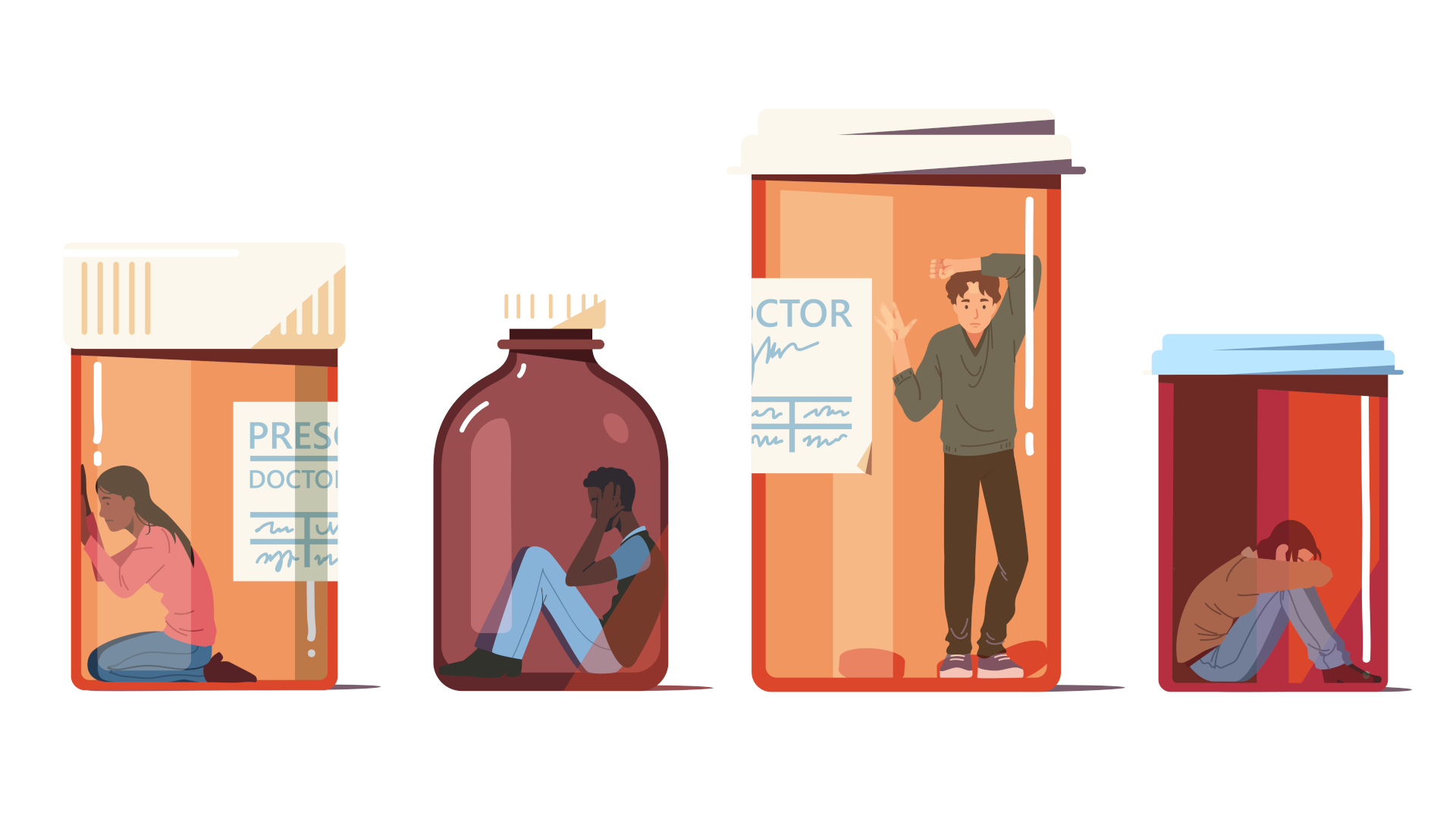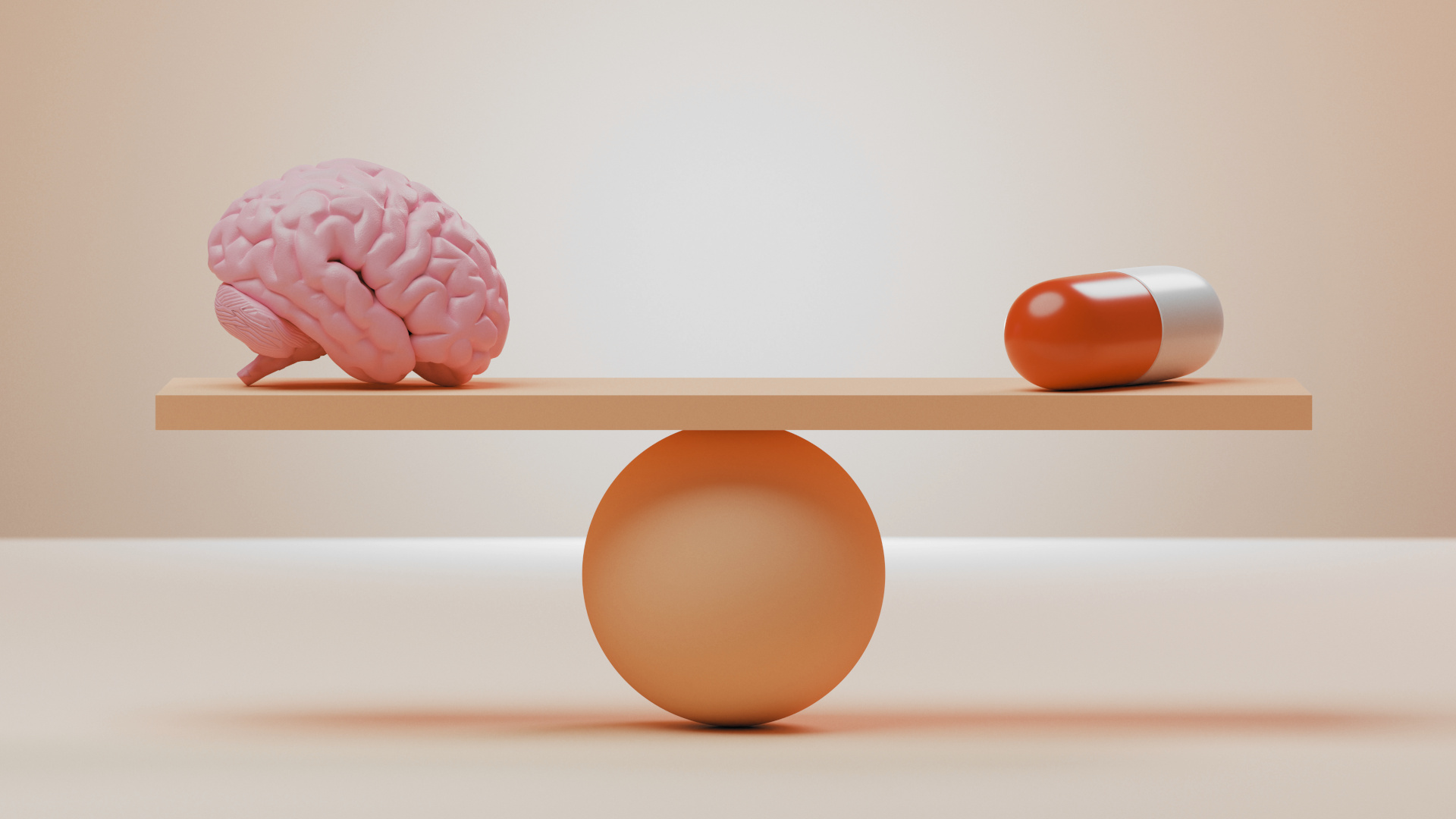A recent study in the journal JAMA Psychiatry claims to offer reassuring news to hundreds of millions of people who are taking, or considering taking, antidepressants: Withdrawal from the medications, it said, is usually mild and below the threshold for clinical significance. The analysis, which drew on data from more than 17,000 patients, was quickly picked up by international news outlets. Critics responded just as quickly, calling it misleading and dismissive of real-world suffering.
As both a practicing psychiatrist and critic of the harms inadvertently inflicted by my own field, I fear we’re having the wrong debate — again.
Every few years, another study or media exposé reignites controversy over these drugs: How effective are they really? Are withdrawal symptoms real or imagined? Are antidepressants harming people more than they help? These questions, while important, are stuck inside the narrow terms set by a medication-centric psychiatric industry, even when criticizing it. They flatten the experience of patients and ignore the intersecting role of clinicians, families, institutions, media, culture, and public policy in shaping both suffering and relief, trapping us in circular debates and deflecting attention from other ways of understanding and addressing what ails us.
Yes, antidepressant withdrawal is real. Yes, some people suffer greatly while trying to come off these drugs, with withdrawal risk varying among different kinds of antidepressants. I have also seen many patients appear to benefit greatly from such medications. But when we focus only on the biology of response and withdrawal, or treat psychiatric medications as purely pharmacologic agents whose harms and benefits can be definitively measured and settled by clinical trials, we obscure the more complex — and far more consequential — dynamics by which these medications affect self-perception, social relationships, and political life.
Although antidepressants have an appropriate place in psychiatric treatment, they’re frequently prescribed in cases where they are unlikely to do much good. The risk of harm commonly outweighs likely benefits, especially under the norms of highly time-constrained, decontextualized, and impersonal clinical practice today, in which medications are often prescribed at the very first appointment. And while I am a critic of the overprescription of antidepressants, I am also wary of the growing public discourse that treats them and psychiatry itself as the primary cause of ongoing pain.
In some cases, what gets labeled as withdrawal is not a straightforward physiological reaction to discontinuing a chemical agent. It can be a complex response to the loss of an object that was invested — often by one’s doctor, one’s family, dominant cultural ideas, and patients themselves — with enormous psychic and symbolic significance. If a pill is presented as a cure for debilitating anxiety tied to grief or trauma, for example, or accepted by a patient as a last-ditch attempt to stave off despair and self-harm, its failure to deliver relief can be devastating and worsen the distress that led to starting the medication.
Although antidepressants have an appropriate place in psychiatric treatment, they’re frequently prescribed in cases where they are unlikely to do much good.
Symptoms after stopping medications can also represent the return — whether in new or old forms — of underlying suffering that was never addressed. This often happens in part because treatment has primarily revolved around generic symptom checklists and decisions on what medications to use rather than meaningful engagement to understand a patient’s experience in the context of their unique life history, needs, conflicts, and desires.
This isn’t a claim that withdrawal symptoms are “all in your head.” It’s a repetition of the well-known but widely disregarded reality that mind and body are not separate, and neither are biology and culture. Symptoms emerge in particular social contexts and take shape through the meanings we attach, typically without our awareness, to them. This is how, for example, what was once considered ordinary sadness or grief has been transformed into a symptom of depression, or how experiences of fatigue or loss of interest that might come from overwork or boredom have been recast as mood and attention disorders.
How we name our experiences and how people around us respond to them affects, in turn, how we feel and navigate them. This culturally contingent nature of symptoms also holds true for the experiences of taking and stopping medications like antidepressants, and it’s true for the conditions they’re meant to treat.
Psychiatry, since the 1970s, has fostered a widespread misrecognition of psychic suffering as the product of discrete brain disorders. This medicalizing narrative has encouraged people to understand their experiences of distress as, first of all, a biological problem to be chemically treated. And when the chemical fix fails, which psychiatry’s own data show it often does, patients are left not only with their original problems but also with a sense of betrayal and confusion. Some come to attribute their suffering to psychiatrists and medications themselves. In some cases, that attribution is almost certainly correct; there are reckless doctors and serious medication side effects. But it’s rarely so simple.

This misrecognition often reflects a deeper one that psychiatry has long cultivated: a tendency to conflate complex social and psychic distress with biological dysfunction. It then fuels what medical science calls the nocebo effect — a negative placebo response — whereby suffering becomes attached to and caused by the idea of a drug, even when the chemical effects of the drug are not in fact the direct cause of one’s symptoms. The nocebo effect, in this case, is not incidental, nor does it mean that psychiatry is not responsible for it. It is an unintended consequence of the very narratives that psychiatry has used to justify its authority and economic value.
Psychiatry has offered simplistic diagnostic labels as if they, by themselves, provide adequate explanations. The result is a vicious cycle: A culture prescribes pills in response to psychic pain, then blames those pills for pain when it persists.
Myriad unintended consequences ensue. People can become locked into an identity as patients defined by biological defectiveness. And even if some patients later reject psychiatry entirely and turn away from psychiatric treatments, many remain captive to them by fixating on those treatments as the source of their problems. Many people invest enormous time, money, and energy into peer forums, withdrawal support communities, and alternative wellness treatments that, while offering a crucial sense of community, can also risk reinforcing the very captivity they seek to escape. These alternatives promote a fixation on the body as a malfunctioning machine, now recast not as chemically deficient but as chemically damaged. In both frames, suffering is narrowly viewed through biology, rather than through the layered histories and defining contradictions of each individual’s singular experiences acting in conjunction with their effects on the body.
Side effects or withdrawal symptoms aren’t the most pernicious harms inflicted by contemporary psychiatry and its medications. Rather, they lie in the failure — of both the clinic and the popular public discourse that has been shaped by psychiatric ideas and language — to facilitate the development of nuanced, individually contextualized, and practically useful frameworks for patients to make sense of social suffering. That failure leaves people vulnerable to simplistic pseudo-solutions: Take another pill, or never take a pill again.
The result is a vicious cycle: A culture prescribes pills in response to psychic pain, then blames those pills for pain when it persists.
It also feeds into misguided and misleading rejection of medical science and psychiatric care by opportunistic figures like Robert F. Kennedy Jr. and the aligned, profit-driven “Make America Healthy Again,” or MAHA, wellness industry. Kennedy has suggested that antidepressants fuel school shootings and has called for a government investigation into the “threat” to society posed by psychiatric medication. He and his allies in President Donald Trump’s administration take advantage of popular culture’s lack of understanding of social experience and mental health to promote moralistic, racist, punitive, and ultimately eugenicist ideologies. With these, they then dismiss suffering and mental illness among poor, disabled, and minority groups as an individual’s own fault, suggesting that they should be ostracized and punished rather than provided support and care.
This narrative, in turn, supports attempts to justify cutting essential public welfare and medical programs while reallocating their funds into expanding systems for policing, incarceration, and deportation. The strategy is encapsulated in Trump’s recent executive order aimed at reopening mental institutions by using police to arrest and then, apparently without any due process, indefinitely forcibly institutionalize poor Americans who are unhoused, judged to be mentally ill, or struggling with addiction.
To stop these cycles of harm, what we need is not yet more superficial debates about medications but a reckoning with the policies and associated ideas that generate and perpetuate distress that drives demand for pharmacologic balm. Mental health professionals should help people — and culture writ large — to identify the psychosocial, historical, and political roots of what they are experiencing and how their suffering could be modifiable through social action at both individual and collective scales. That means reversing the overmedicalization of mental health and illness in order to confront the political determinants of health: poverty, racism, social isolation, inequality, mass incarceration, and growing levels of political violence and nihilism amid the rise of oligarchy. It means reinvesting in public systems of care and rebuilding them on a new community-oriented basis that offers time, attention, and sustained relationships, rather than just doctor’s appointments, diagnostic codes, and 15-minute medication checks.
It requires psychiatrists to ensure that people have the space and time to tell (and retell) their stories on their own terms — not by simply describing their symptoms, being assigned a psychiatric diagnosis, or completing six sessions of formulaic cognitive behavioral therapy, but by sharing their personal histories, desires, losses, and dreams. And it also requires providing people everyday opportunities to care for one another, which is an essential role for feeling and affirming one’s own social value, rather than defaulting to the presumption that only licensed medical professionals are capable of providing meaningful care to people experiencing distress.
To achieve this, we need to invest in more and better care, not less. And to make that happen, we need to rally as a political community to demand policies that support this goal rather than allow the Trump administration to continue decimating the nation’s already deficient public health and welfare infrastructures in service of further privatization and profits.
This must be the crux of any real plan to accurately diagnose and effectively address the causes of declining mental health in America. It is what we must insist upon at every turn. And it is only when we do so that the uses and limits of medications like antidepressants are likely to finally be put right.
Dr. Eric Reinhart is a psychiatrist, political anthropologist, and psychoanalytic clinician. He works with individuals and collectives around the world.












Well said and written. The origin of this ‘conflicting dichotomy ‘ of body-mind treatment of a human being happens when we reduce humans into ‘pseudo- biological’ (physical) systems while inadvertently neglecting the mental and spiritual (metaphysical values/meanings of existence) states of a person. Although we can talk about the 3 aspects of being human ie Body-Mind-Spirit, we constantly reduced our treatment of humans into one aspect and ignore the other equally important aspects of being human. Cultural influence of health and wellness are inadvertently neglected when doctors only talk (overemphasized) on hormones and neurotransmitters. Although drugs affect the brain (Thinking-Feeling-Reasoning) aspect of being a Person, ‘it’ failed to explain the contribution social/cultural influence (through values and meaning of existence). This is mediated through Mirror Neurones. It is the main reason how and why Cultural/Social influence affects the neuronal circuitry inside the brain. It is Brain-Mind-‘Spiritual’ aspects of the Person. The Meanings, Values and Reasonings driving the Choice/Decision of the Individual (Self-Others evaluation) is obviously more than just a physical or chemical systems It is Biology, more than a Stone(computer system), Plant, Animal or just a human body (effectively a stone).
Our attitude and treatment of other humans will determine whether we regard humans as mere objects or a living Biology ie with Body-Mind-Spirit aspects of being human.
Antidepressants will continue to be a hotly debated topic because while they may help some, many have been harmed. In my own opinion, if something has the *potential* of causing harm, it is not a good solution. I have been on antidepressants for over 30 years and wish I had never gone on them. I am currently trying to taper and withdraw from them. If I taper too fast the withdrawal effects are so severe that they become life-threatening. I have personally seen people take their lives due to AD withdrawal because their own doctors lacked proper knowledge in how to safely taper their antidepressant. People are ripped off their drug cold turkey or tapered much too fast. This is inexcusable. It’s no wonder that more and more people have come to distrust doctors. I am a member of a few support forums and I have seen the damage up close and personal. And trust me, it’s ALL a result of the chemical leaving their body.